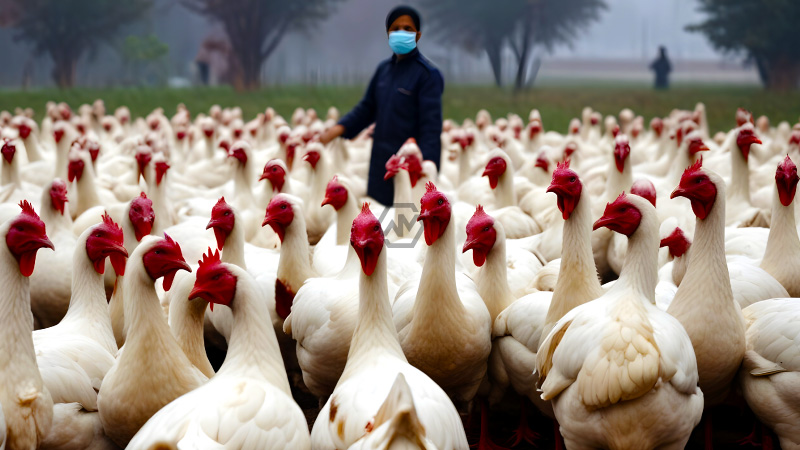- WHO confirms second human case of avian flu (H9N2) in India
- 4-year-old child in West Bengal diagnosed; previously had hyperreactive airway disease
- Vigilance urged to prevent further spread; underscores risks of animal-to-human transmission
WHO has confirmed a troubling development in India as a 4-year-old child from West Bengal tested positive for avian flu (H9N2). This marks the second human case reported in the country, raising concerns about the potential spread of the virus and highlighting the need for enhanced vigilance and preventive measures.
With the recurrence of severe respiratory symptoms in the child, the case underscores the complex challenge of managing such diseases, especially in vulnerable populations. The diagnosis also serves as a reminder of the importance of monitoring animal influenza viruses closely to prevent their transmission to humans.
Avian Alarm: WHO Confirms Second Human Bird Flu Case in India
In a troubling development, WHO has confirmed a second human case of avian flu in India. The patient, a 4-year-old from West Bengal, tested positive for the H9N2 virus, raising concerns about the virus’s spread. The recurrence of severe respiratory symptoms highlights the challenge of managing such diseases, especially in vulnerable populations like children.
The case underscores the importance of monitoring animal influenza viruses closely to prevent their transmission to humans. Vigilance and preventive measures are crucial to curb further spread of the virus. Authorities must remain proactive in containing the outbreak and protecting public health.
Efforts to enhance surveillance and control measures are imperative to mitigate the risks posed by avian influenza. Collaborative action at local, national, and international levels is essential to effectively combat the spread of the virus and protect human health.
As the second human case of avian flu emerges in India, it serves as a stark reminder of the ongoing threat posed by zoonotic diseases. Heightened surveillance, rapid response mechanisms, and international cooperation are paramount in containing outbreaks and safeguarding global health.
“Vigilance and swift action are crucial in confronting the evolving threat of avian influenza, underscoring the importance of collaborative efforts to protect public health.”



